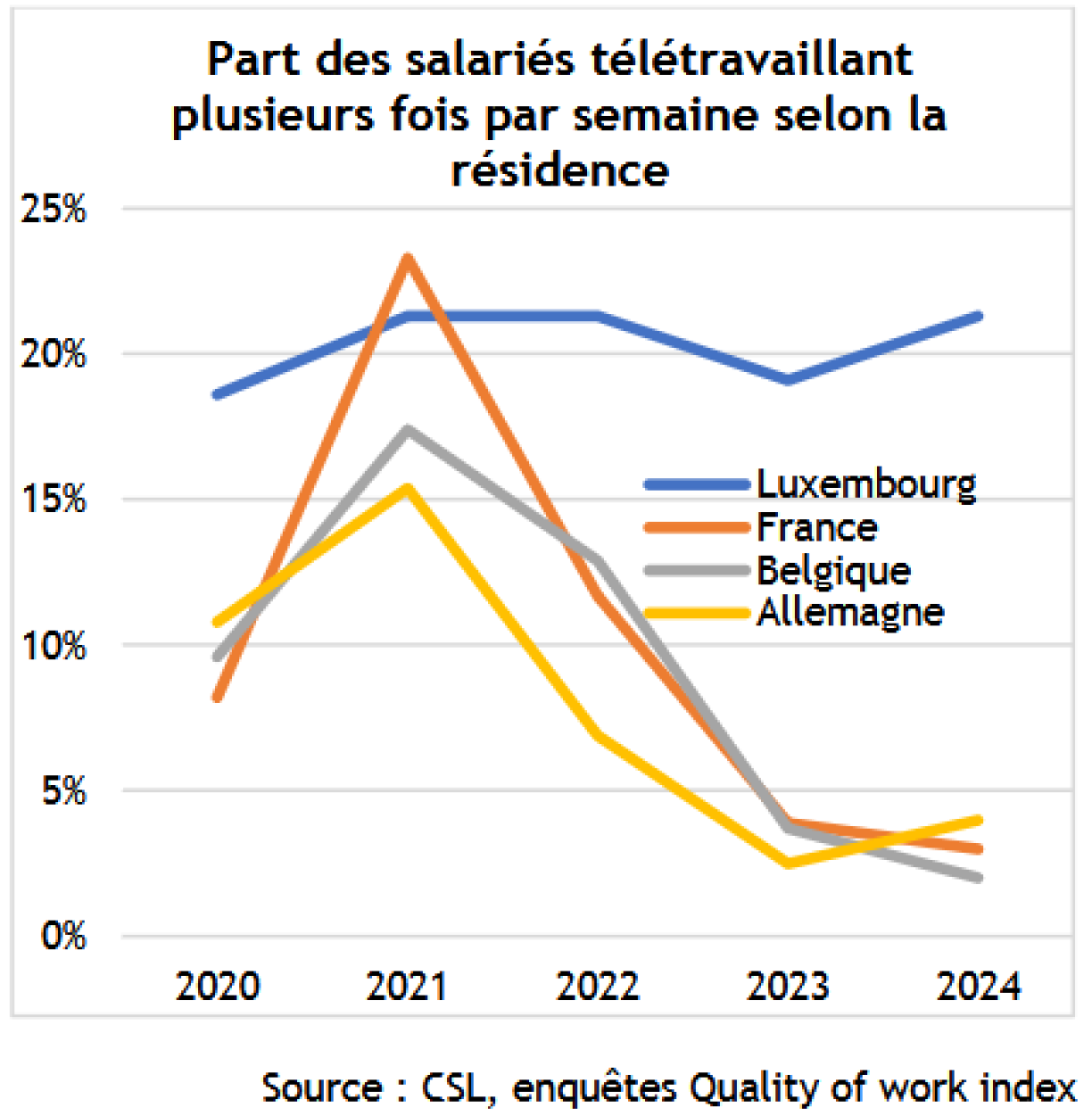
The pandemic-fuelled “golden age” of remote work appears to be waning in Luxembourg, with stark disparities emerging between residents and cross-border workers, according to a recent Idea Foundation report.
While 20% of residents still telework multiple times weekly – a practice now twice as common as pre-pandemic levels – just 3% of cross-border workers maintain similar routines. The divide persists despite over half of all jobs being theoretically suitable for remote work.
Resident telework participation peaked at 52% in mid-2020 before stabilising at 40% in early 2024. Cross-border workers saw more dramatic swings: after reaching 37% adoption during the pandemic, their participation plummeted to 22% in the following period.

Among weekly teleworkers 20% are Luxembourg residents, compared to only 3% cross-border workers (4% German-based, 3% French-based, 2% Belgian-based).
The foundation notes 53% of cross-border jobs could theoretically accommodate remote work – only slightly less than the 58% potential for residents – raising questions about persistent barriers to adoption.
The significant gap in remote work access between Luxembourg residents and cross-border workers results from more than just varying employer policies – it reflects fundamental fiscal and social security constraints, according to the Idea Foundation’s analysis.
Under current regulations, Luxembourg residents may telework without restriction, facing no tax or social security consequences regardless of how often they work remotely. Cross-border workers, however, operate under strict limitations: they may only work remotely for 34 days per year before triggering tax complications, with social security considerations capping telework at 112 annual days. Although these thresholds have been recently clarified, the Foundation emphasises they continue to create administrative burdens that discourage wider adoption. “The bureaucratic complexity disproportionately affects both employers and non-resident workers,” the report states.
The Foundation suggests the Franco-Swiss model could offer a viable solution. This framework would substantially increase the permitted telework threshold to 40% of annual workdays (approximately 90 days), while introducing tailored financial compensation mechanisms to address regional fiscal concerns. Such an approach could bridge the current disparity between resident and cross-border workers’ telework access while maintaining necessary fiscal safeguards.
While acknowledging the Franco-Swiss model’s potential to enhance Luxembourg’s competitiveness for international talent, the Idea Foundation cautions that implementation requires careful study. “Any policy change would create ripple effects – both positive and negative – across regional economies and public finances,” the report states, emphasising the need for detailed impact assessments. Particular attention would need to focus on revenue redistribution mechanisms for border regions that absorb infrastructure costs tied to cross-border employment.
The proposal reveals clear divisions among stakeholders. Luxembourg’s hospitality sector strongly opposes increasing telework days for cross-border workers. Conversely, cross-border workers themselves might highlight the advantages of remote work arrangements, including improved quality of life and productivity gains.